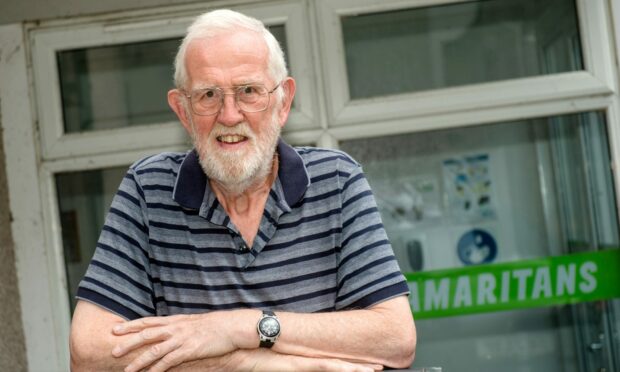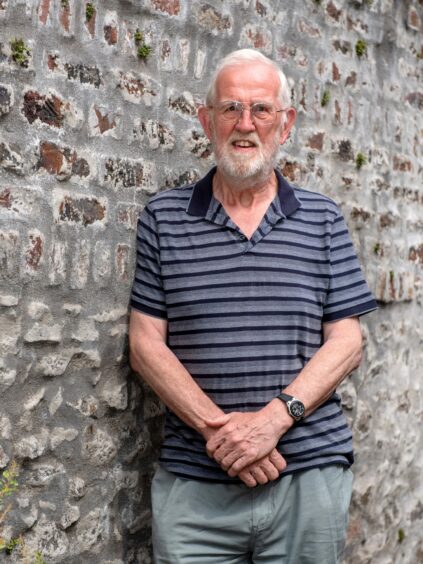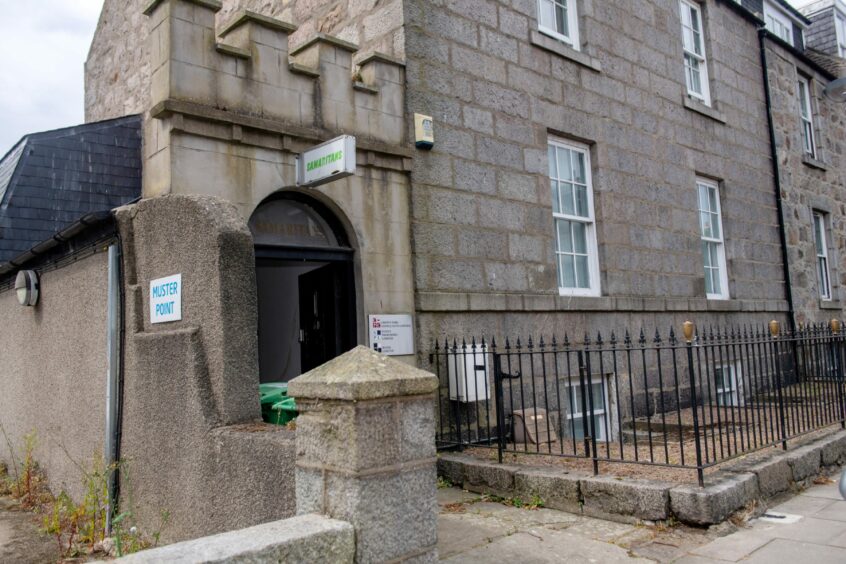When Mark Young retired 10 years ago, he decided his work helping others wasn’t yet over.
The former student support officer was keen to continue using his skills for good, and already had an idea of his next steps.
“I wasn’t 100% sure why Samaritans was at the top of my mind, but I’m very glad it was,” he said.
A decade on he’s helped hundreds, if not thousands, of callers work through all manner of personal problems.
And while it’s not always the easiest role, Mark says it is often incredibly rewarding.
What sort of callers ring Samaritans?
“It’s never as you expect,” he explained. “It’s much more varied in terms of what our callers bring to us.
“It’s not always focused on people who are seriously suicidal.
“There’s an awful lot of people who maybe have mental health issues but not to the suicidal end of things, or are lonely or have relatively smaller problems.
“They often say ‘Sorry, I’m wasting your time’ but, to them, it’s causing them distress.
“Every shift you don’t know if you’re going to get heavily emotional calls, or a succession of more day-to-day calls.”
“I think you’re allowed to say ‘I enjoy being a Samaritan’.
“When you talk to someone and it seems to have done them good – and our stats show around 70% feel better at the end of the call – it makes you feel a bit more cheerful yourself.”
‘I’ve felt I was the last person between the caller and suicide’
Rather than giving advice, Samaritans are trained in active listening.
This helps people explore their concerns without directly telling them what to do.
Mark said: “When I started, I didn’t realise how extraordinarily important you can be.
“I’ve had calls where I’ve felt I’ve been the last person between the caller and suicide – that’s an enormous responsibility.
“You’re speaking to somebody on the phone and you’re the only person between them and something horrendous.
“But it’s a tremendous privilege too. Sometimes they’ll say they want to talk about a problem they’ve had their whole life, and I’m the first person they’ve spoken to about it.
“And you realise this is important and you’re doing a really responsible thing.”
‘I’ve talked about things I can’t tell my wife’
And while the contents of every call is confidential, volunteers are always manning the phones in pairs, with a remote supervisor also on hand, to ensure there’s plenty of support available.
“During my last shift I had a very, very emotional call, but I was able to talk it through after with my shift partner and the leader,” Mark said.
“Everything is confidential so when I went home I couldn’t tell my wife what it was about, but I felt like I could cope because I’d been able to talk about it.
Talking about how you're feeling is never a sign of weakness. It's a sign of strength 💚
— Samaritans (@samaritans) July 20, 2022
“I share emotional calls and talk about emotions I probably wouldn’t have talked to anyone else about.
“My wife sometimes says ‘I bet you’ve talked about more important things with [other volunteers] than you ever have with me’ – and she’s probably right.”
Finding the positives – even in the hoax calls
Like most telephone-based organisations, the Samaritans team in Aberdeen also have to deal with a share of hoax calls.
Sometimes these can be angry, with someone shouting through their handset, or trying to treat it like a sex line.
Even in these situations, Mark is still able to find a potential silver lining.
“You can have calls where someone was lonely and wanted a chat – it’s still worth doing.
“Or with the angry calls, you wonder why they are angry.
“Maybe they can just phone me and tell me what a fool I am, and maybe that has helped them.”
Quick reminder: we're here all weekend if you need someone to listen 👇 pic.twitter.com/XxlHdjLInY
— Samaritans (@samaritans) July 8, 2022
Mark added: “Without being too pompous about it, I think being a Samaritan has helped me be a better person in my day-to-day life as well.
“It’s made me much less judgemental.
“Hand on heart, I’m so glad I’m a Samaritan.”
For more information on volunteering for Samaritans or supporting in other ways, visit samaritans.org.
The charity’s free helpline can be accessed 24/7 by calling 116 123 or emailing jo@samaritans.org
- July 24, 2022
- July 24, 2022
- July 24, 2022



Conversation